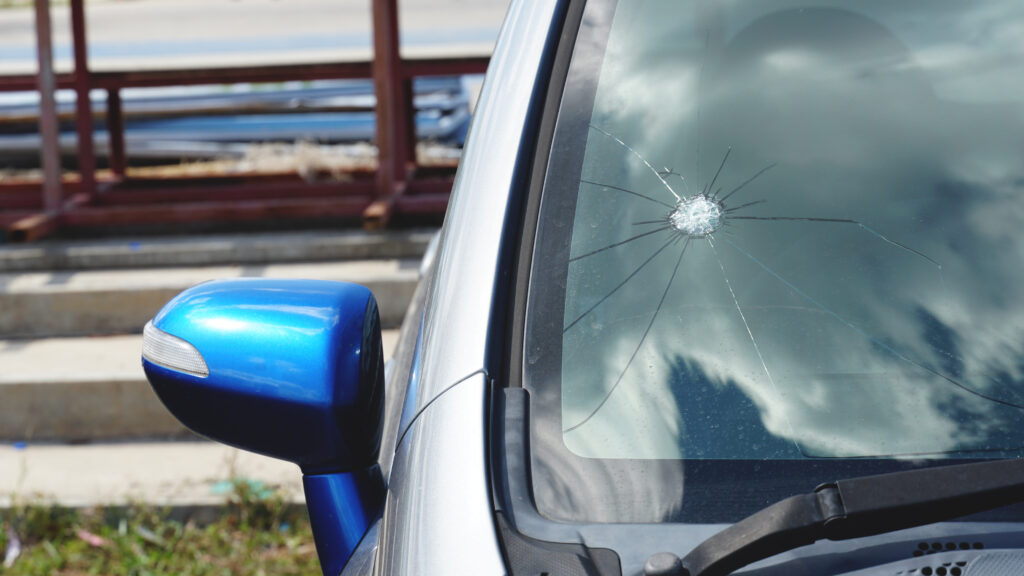Leasing is a popular alternative to buying or financing. This works differently than a rental or financing a car. When you lease a vehicle from a dealer it means you’re renting it long-term. This period can last anywhere from 12 to 36 months. Like when you’re financing, you don’t own a car that you’ve leased. This means they’re likely to set rules for you to follow to protect their asset and money.
Before you lease, you should understand what that means for your premium. The dealership will likely require that you fully insure the car. This means you’ll need to carry a few different types of auto insurance to satisfy the requirement.
In this article, you’ll get an idea of what types of insurance you’ll need if you lease a car. This includes taking a look at what the dealer will require of you once you get the vehicle. Finally, you’ll get an idea of what happens if you total the car and how you can avoid having to pay back what you owe out of pocket.
What Your Lender Will Require
When you lease from a dealership, you’ll need to abide by the rules they set for you in the contract. This includes what types of insurance you’ll need to buy. Lenders want to make sure that their car will have protection from all types of damage. Generally, this means you’ll have to full coverage when you lease a vehicle.
Full coverage usually consists of collision and comprehensive insurance. No state requires it, but your lender likely will so that they can protect their financial interests. Below is a brief description of what each type of will protect your leased car from:
Collision
Collision insurance protects your car from damages that an accident causes. It’ll cover the costs regardless of fault. However, if you’re not at fault, the other person’s liability coverage will likely cover most or all of the damages.
Having collision will also protect you from damages that occur from accidents that don’t involve another car. This includes collisions with:
- Light posts
- Trees
- Potholes in the road
It’ll also cover single-car accidents. This is an accident that doesn’t involve any other vehicles or objects. Falling and rollover accidents are common examples of this.
Comprehensive
Full coverage also includes comprehensive, which protects your vehicle from damages that random disasters cause. Some insurers may also call these an “act of God.” Below are several examples of qualifying events:
- Natural disasters i.e., hurricanes, tornadoes, earthquakes, hailstorms
- Flooding or water damage (only if you weren’t at fault)
- Vehicle theft
- Vandalism
- Riots or civil disturbances that cause damage (this is similar to vandalism)
- Windshield damage (only if a random event causes it)
- Falling objects
- Fire damages
- Collisions with an animal, such as a deer
All of the above are examples of random events that you can’t control. Comprehensive coverage will make sure neither you nor your bank loses money while paying the expenses for it.
What Full Coverage Doesn’t Pay For
Collision and comprehensive both protect you from expensive damages, but they don’t cover any medical bills. It’s unlikely that your car lender will require you to have any personal injury coverage.
It’ll be up to you to buy personal injury protection (PIP) or medical payments (MedPay) to protect yourself from paying out of pocket for medical costs. Hospital bills can cost thousands of dollars, so any type of add-on to protect you is worth thinking about.
State Minimum Coverage Requirements
To legally drive a car in the United States, you’ll still need to acquire the level of auto insurance required by your local government. Every state outside of Virginia and New Hampshire requires coverage. Not all states require the same limits, though. Each state has its own set of minimum coverage requirements. This includes what type of protection you’ll need to have and how much of it.
Below are the coverages that most states generally require:
Liability Is Required
Most states require liability insurance to drive. This is the most basic form of auto policy. It protects you from having to pay out of pocket for damages to another person’s car in an at-fault accident. Unlike full coverage, liability only covers the other person’s expenses, not yours.
There are two parts to liability: bodily injury and property damage liability.
Bodily injury liability (BIL) covers any of the other party’s medical expenses if you cause an accident. It’ll also protect any drivers on your policy in the car that you’re insuring. Bodily injury handles these types of expenses:
- Emergency services (ambulance fees)
- Surgeries
- X-rays and other medical tests
- Funeral costs
- Loss of income or wages
- Rehabilitation fees
- Housekeeping due to injury
- Follow-up doctor visits
Property damage liability (PDL) is the other part of liability insurance. It’ll protect you from any damages to another party’s property. This includes damages to any of the following:
- Light posts
- Telephone poles
- Trees
- Fences
- Other vehicles
- Buildings and structures
Remember, each state has its own minimum coverage requirement. Be sure to consult your local laws on the amount of liability insurance that you’ll need.
Uninsured and Underinsured Motorist
Some states may require you to have uninsured and underinsured motorist (UM and UIM) coverage. UM and UIM protects you from drivers who either don’t have enough car insurance or who have none at all. Not having UM and UIM could leave you to pick up the pieces and pay for the expenses after an accident.
While some states require UM/UIM, not all of them do. Be sure to consult with your state’s laws and speak with your agent to decide whether you need it.
What Happens if You Total Vehicle You’re Leasing
Things can get complicated when an accident totals your vehicle. An insurer will usually declare a car a total loss if repair costs exceed its actual cash value or ACV. If you owned the vehicle outright, you’d then get to decide what to do with it afterward.
It’s a bit different when you’re leasing or financing. In both situations, you’ll still owe the balance remaining on the lease or loan. This can usually amount to thousands of dollars left to pay with interest.
Guaranteed Asset Protection (Gap)
A car’s value will depreciate as soon as you start driving it. This means that the vehicle’s cash value, especially after an accident, won’t be as high as you may think. This could leave you on the hook to pay thousands back to your lender.
One of the ways you can avoid paying out of pocket when your car is a total loss is by adding Guaranteed asset protection, or gap, to your policy. This type of auto insurance will keep you from having to pay the rest of your lease or loan. It’ll cover the difference between your vehicle’s cash value after the accident and the rest of what you borrowed.
Your lease contract might already include gap insurance. Dealerships often add it into the contract. This is because it ensures that they’ll be able to get their money back if the vehicle gets totaled. Before buying any gap of your own, you should check with your car lender to make sure that you don’t already have it.
Frequently Asked Questions
Does it cost more to insure leased cars?
Yes, insurance for leased cars is usually more expensive because whoever financed your lease is the vehicle’s owner and they’ll want their property fully protected. So, you could end up with significantly more coverage than you might have otherwise purchased.
The dealer you lease from will most likely require you to buy full-coverage and possibly guaranteed asset protection. They may also require you to maintain high limits. Depending on the vehicle, these extra protections can really add up.
Does Gap insurance cover leased cars?
Yes, guaranteed asset protection covers your lease. In some cases, your auto dealer might even include gap insurance as part of your contract. It’ll pay the remaining balance on your account after it becomes a total loss.
Is there a special kind of policy for leasing a car?
There is no special type of auto leasing insurance. The insurance you’d normally use is the same for a lease. But your dealer might require you to carry full-coverage on your policy. They do this to protect both their vehicle and money. A leased car doesn’t cost more to insure, you just might policy add-ons and a potentially larger amount.


